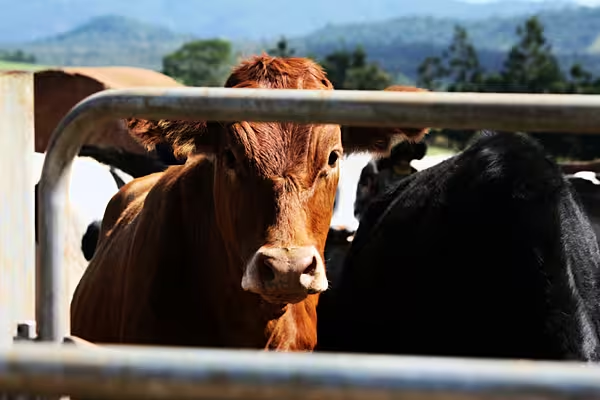Argentina’s push to ramp up agriculture exports is moving to a new frontier: micro-chipped cows.
For the first time, the nation’s government will work to promote the technology in an effort to increase the traceability of supplies and make beef shipments more attractive to potential buyers in the US and Asia, according to Jorge Dillon, the president of the country’s agricultural sanitary service, or Senasa.
Currently, farmers use coloured ear tags to manually track cattle. Microchips, and the accompanying digital tracking, would eliminate errors that arise from monitoring animal movement with paperwork, Dillon said in an interview in Buenos Aires. The technology can pave the way for Argentina to sell its beef to countries with even the most stringent import requirements, he said. Shipments to the US have been banned since 2001 because of an outbreak of foot-and-mouth disease.
Countries focused on beef exports, such as Australia, have already turned to micro-chipping as Asia’s desire to track steaks all the way back to the ranch increases and world concerns over food safety intensify, said Glynn Tonsor, an associate professor of agricultural economics who specializes in traceablity at Kansas State University.
The move to push micro-chipping, which could be published in Argentina’s federal register as soon as next week, reflects broader efforts to open up Argentina’s beef sector under President Mauricio Macri. He’s been leaning on farmers to drive an economic recovery since taking office in December 2015. It’s a turnaround from his predecessor, Cristina Fernandez de Kirchner, who focused on protectionist policies. Beef producers were among the worst hit in the Fernandez de Kirchner years, as high export taxes and domestic price controls stifled the industry.
US Market
Argentine officials have been in talks with counterparts in the US to resume exports to the country for months. Progress in those negotiations could expedite access to countries in Asia, including Japan and South Korea, Dillon said.
“The US would put us in the shop window for other very demanding markets,” Dillon said.
The microchip system will initially be voluntary because the cost would be too high for small-scale farmers with fewer than 100 cattle, Dillon said.
US inspectors visited Argentine slaughterhouses in December, but there hasn’t been much movement in the negotiations since then. Dillon said the American officials had requested extra information on sanitary controls and that Argentina responded two weeks ago. If the inspectors are happy with the clarifications, approval could be imminent, he said.
News by Bloomberg, edited by ESM. Click subscribe to sign up to ESM: The European Supermarket Magazine.














